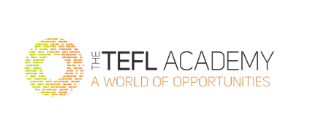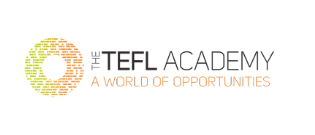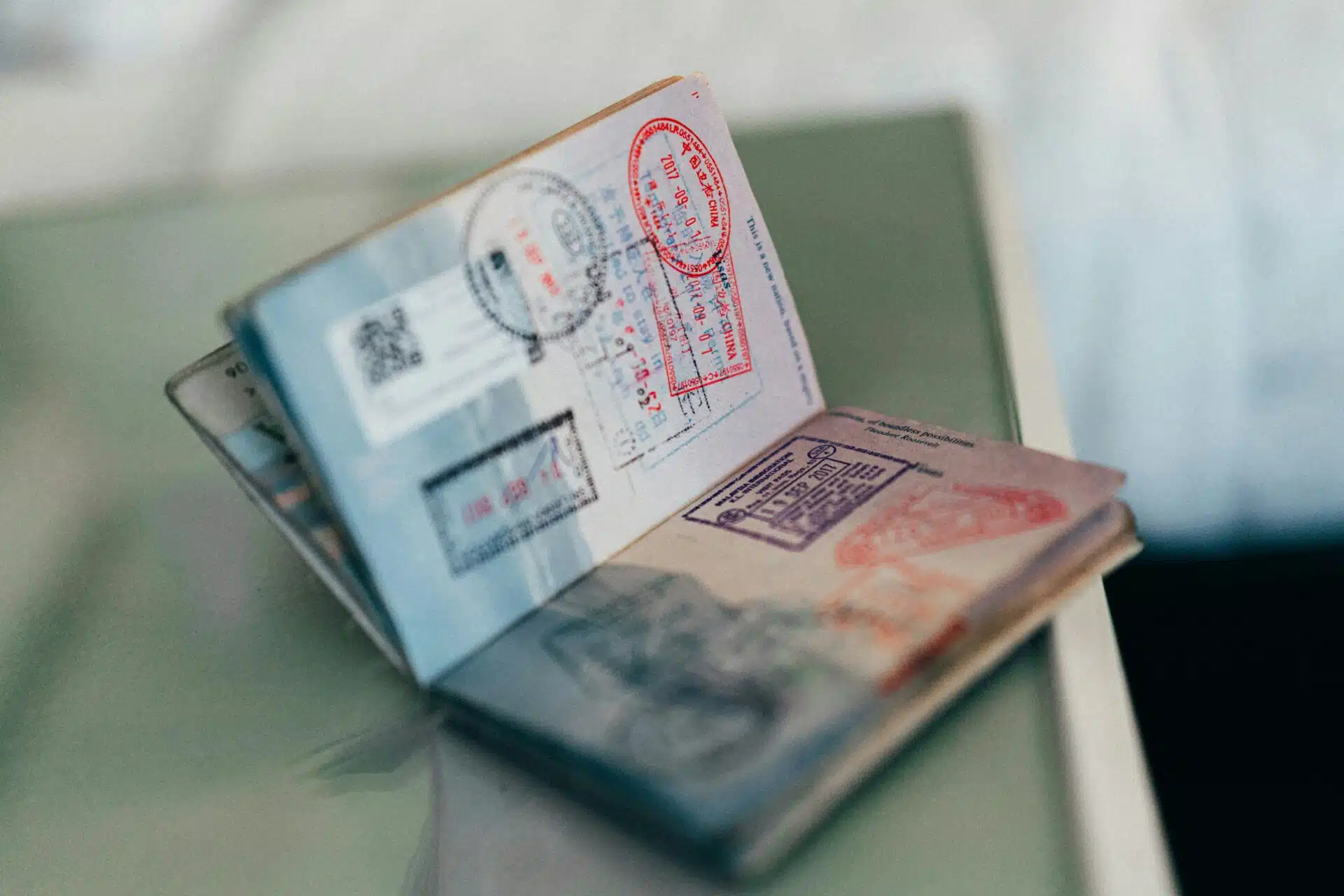Teach English in Ireland
a world of opportunities
Join a global community of over 200,000 TEFL teachers working throughout the world! Enrol me!
Contents
Why teach in Ireland?
Where to teach
Requirements and qualifications
Jobs and programs
Salaries and benefits
Cost of living
Saving opportunities
Life and culture
Breath-taking landscapes and fascinating, friendly people.
Ireland, or the Republic of Ireland, is a sovereign state which occupies about five-sixths of the island of Ireland. It shares a border with Northern Ireland which is a part of the United Kingdom.
A truly romantic destination, Ireland is a country of castles and fairytales, leprechauns and whisky.
Why teach English in Ireland?
Even though Ireland is an English-speaking country, there are many EFL teaching positions available. Many people come here to study or work and so there is a high demand for English teachers.
In fact, in 2016, Ireland was the number one per capita destination in the world for EFL students, with 122,000 students – fifth globally in terms of actual numbers of students.
Best places to teach English in Ireland
In Ireland, you will find teaching opportunities in language schools, international schools, and businesses offering English courses for professionals. Dublin undoubtedly has the most EFL positions, but there are a few language institutions in Galway and Cork.
Dublin
For the city slicker
Imagine a thriving metropolis, but smaller and friendlier. That’s Dublin. Ireland’s capital and largest city, Dublin is as famed for its congeniality and warmth as it is for its literary legacy. Dublin is a student town with tens of thousands of foreign students – so there are bound to be tons of EFL students.
Galway
For the muso
Galway is a typical, quaint, Irish city with a love of Irish music. Not surprisingly, it’s famous for being the festive capital of Ireland, hosting around 120 festivals and events throughout the year.
Cork
For the foodies and nature lovers
Cork is laidback and quirky. With its city centre on an island in the middle of a river, Cork offers cafes, restaurants and pubs to satisfy even the most adventurous foodie.
Requirements and qualifications to teach in Ireland
Contract lengths may vary and peak hiring seasons occur year-round. Teaching opportunities are available to both adults and students.
Do you need a visa for teaching English in Ireland?
Non-EU citizens will need a work permit to teach, while EU citizens are exempt from this requirement. It’s the responsibility of the teacher to secure the visa.
Ireland has agreements with several countries which allow their citizens to apply for a Working Holiday Visa. This visa allows you to travel around Ireland and work to support your travelling. The main purpose of the visa cannot be to work. It’s valid for 12 months.
Do I need teaching experience to teach in Ireland?
Teaching experience is not essential but is preferred.
Which TEFL certificate do I need to teach in Ireland?
As a native English-speaking country, the job market in Ireland is competitive. We recommend our Level 5 Diploma to give yourself the best chance at landing that job teaching English in Ireland.
Can I teach English in Ireland with no degree?
To be eligible for teaching positions, a BA/BS degree is typically required.
Can non-native speakers teach English in Ireland?
Absolutely. Provided you have the right qualifications and work visa, TEFL jobs in Ireland are open to any nationality.
How much start-up capital do I need?
Here are a few costs you need to consider when starting out in Ireland:
- Accommodation: First month’s rent and security deposit.
- TEFL certification: A TEFL course can cost between $100 and $500, depending on the length and level of the course and the course provider.
- Document fees: Any costs related to certifying and notarising your degree and TEFL certificate.
- Flight ticket: Variable.
- Visa application: The cost of a visa is subject to your home country. You can expect to pay between $100 and $150.
- Living expenses: You will need one month’s worth of start-up capital of about €750 – €1,000 ($815 – $1,100).
Jobs and programs in Ireland
Most of the work you will find pays on an hourly basis unless you are signed onto a long-term contract, which is usually reserved for local teachers or management staff. Your salary may not be very stable since it will vary according to the season and the number of hours you are given.
Types of teaching jobs in Ireland
Considering that in 2020, according to ACELS (Accreditation and Co-ordination of English Language Services), there were almost 100 private language schools in Ireland, there are bound to be loads of opportunities available to you.
The majority of TEFL jobs can be found in private language schools in and around Dublin and Cork.
Private language schools
In a private language school, you can expect to work 3 – 7 hours a day, 5 days a week, mornings and afternoons and possibly evenings too. Your hours shouldn’t exceed 25 a week. Your lessons will be Conversational English, General English, Business English, English for Exams, or English for Specific Purposes – Aviation, Hospitality, Nursing, and so on.
Your learners will range in age from 16 to 50+ and your class size shouldn’t exceed more than 12. You are usually paid an hourly wage.
Private lessons
Many TEFL teachers in Ireland give private lessons to supplement their income.
Online
Teaching English online is another flexible way to earn a bit more cash.
Other teaching programs in Ireland
Summer camps
During the summer especially there is an influx of European students who come out to Ireland to attend summer camps. Summer camps are a great way to earn some extra money for a couple of months and get some teaching experience.
How to get a job teaching English in Ireland
If you’re in Ireland, it’s quite easy to look up language schools and take your CV in person. ESL jobs are often advertised in local newspapers.
If you’re not in Ireland, look for job openings on online jobs boards. Alternatively, contact the schools directly.
Salaries and benefits in Ireland
There are a variety of teaching opportunities in Ireland for English teachers. Your salary will differ based on which teaching route you choose to follow.
What is the average teaching English salary in Ireland?
- The average salary of a TEFL teacher in Ireland ranges between €1,500 – €3,500 ($1,600 – $3,800) a month.
- Private language schools pay €16 – €32 ($18 – $36) an hour.
- For private lessons, TEFL teachers usually charge €20 – €25 ($22 – $27) an hour.
- Online teachers charge €20 – €25 ($22 – $27) an hour – more if you are highly qualified and experienced.
What are the common benefits for teachers in Ireland?
Don’t expect too many benefits from your teaching job in Ireland. Private language schools typically don’t cover flight costs, assist with work visas, or provide accommodation.
Cost of living in Ireland
The cost of living in Ireland is quite high. Dublin is the most expensive city to live in in Ireland, with average monthly costs not that far behind the likes of London.
What is the cost of living in Ireland?
Here are some of the usual costs of living in Ireland:
Accommodation
- A one-bedroom apartment in the city centre: €1,000 ($1,100) a month
- A one-bedroom apartment outside the city centre: €500 ($545) a month
Utilities
- Electricity, water, and gas: €180 ($200) a month
Food and groceries
- Monthly shop: €225 ($250)
- Meal at an inexpensive restaurant: €15 ($16)
Transport
- Monthly travel pass: €35 ($38)
- One-way ticket: €1.50 ($1.60)
Internet
- Unlimited: €35 ($30)
Entertainment
- Gym, cinema, clubbing: €90 ($100) a month
Is it possible to save as a TEFL teacher in Ireland?
It’s not likely that you’ll save big bucks while teaching English in Ireland, mostly due to the high cost of living. You should be able to afford a comfortable lifestyle in Ireland, and travel experiences around the country, in the UK and on the continent.
Here are some tips for saving in Ireland:
- Save money on rent by doing a homestay, or a houseshare with friends and colleagues.
- Use public transport or walk or cycle.
- Join a local freecycling group to barter clothes, books, appliances and other household items.
- If you’re planning to explore the country on vacation, plan your trip for the shoulder seasons – mid-April to May and late September to October.
- Eat out earlier than usual and enjoy Early Bird discounts at selected restaurants.
- Buy a Heritage Card for €40 a year and enjoy free access to 45 heritage sites around the country.
Life and culture in Ireland
- Known as “the land of saints and scholars”, Ireland boasts more winners for the Nobel Prize for Literature than any other country in the world.
- There are more than 50 seaside links courses or 400 regular golf courses to choose from.
- The Irish are known for their tea-drinking skills, with statistics showing that the average person drinks 1,184 cups of tea a year, making them the 3rd largest in the world for tea consumption.
- A country steeped in sports history Ireland has two traditional sports still played today: hurling and Gaelic football. Hurling incredibly dates back over 4,000 years, played by the Irish warriors of the time to hone their sword skills for battle. Hurling is known as the fastest sport on grass played with a hurl (wooden stick) and a ball known as a sliotar.
- Gaelic football, on the other hand, is a mixture of soccer and rugby. The first game of Gaelic football was in 1885, only 22 years after soccer was first played. The finals of both sports are played at the historic Croke Park, Europe’s 4th largest stadium, with a capacity crowd of 82,300.
- EFL classes in Ireland are multicultural affairs, with students from Asia, South America, Africa and Europe.
Start your teaching journey with a certified TEFL course provider!
Contents
Breath-taking landscapes and fascinating, friendly people.
Ireland, or the Republic of Ireland, is a sovereign state which occupies about five-sixths of the island of Ireland. It shares a border with Northern Ireland which is a part of the United Kingdom.
A truly romantic destination, Ireland is a country of castles and fairytales, leprechauns and whisky.
Why teach English in Ireland?
Even though Ireland is an English-speaking country, there are many EFL teaching positions available. Many people come here to study or work and so there is a high demand for English teachers.
In fact, in 2016, Ireland was the number one per capita destination in the world for EFL students, with 122,000 students – fifth globally in terms of actual numbers of students.
Best places to teach English in Ireland
In Ireland, you will find teaching opportunities in language schools, international schools, and businesses offering English courses for professionals. Dublin undoubtedly has the most EFL positions, but there are a few language institutions in Galway and Cork.
Dublin
For the city slicker
Imagine a thriving metropolis, but smaller and friendlier. That’s Dublin. Ireland’s capital and largest city, Dublin is as famed for its congeniality and warmth as it is for its literary legacy. Dublin is a student town with tens of thousands of foreign students – so there are bound to be tons of EFL students.
Galway
For the muso
Galway is a typical, quaint, Irish city with a love of Irish music. Not surprisingly, it’s famous for being the festive capital of Ireland, hosting around 120 festivals and events throughout the year.
Cork
For the foodies and nature lovers
Cork is laidback and quirky. With its city centre on an island in the middle of a river, Cork offers cafes, restaurants and pubs to satisfy even the most adventurous foodie.
Requirements and qualifications to teach in Ireland
Contract lengths may vary and peak hiring seasons occur year-round. Teaching opportunities are available to both adults and students.
Do you need a visa for teaching English in Ireland?
Non-EU citizens will need a work permit to teach, while EU citizens are exempt from this requirement. It’s the responsibility of the teacher to secure the visa.
Ireland has agreements with several countries which allow their citizens to apply for a Working Holiday Visa. This visa allows you to travel around Ireland and work to support your travelling. The main purpose of the visa cannot be to work. It’s valid for 12 months.
Do I need teaching experience to teach in Ireland?
Teaching experience is not essential but is preferred.
Which TEFL certificate do I need to teach in Ireland?
As a native English-speaking country, the job market in Ireland is competitive. We recommend our Level 5 Diploma to give yourself the best chance at landing that job teaching English in Ireland.
Can I teach English in Ireland with no degree?
To be eligible for teaching positions, a BA/BS degree is typically required.
Can non-native speakers teach English in Ireland?
Absolutely. Provided you have the right qualifications and work visa, TEFL jobs in Ireland are open to any nationality.
How much start-up capital do I need?
Here are a few costs you need to consider when starting out in Ireland:
- Accommodation: First month’s rent and security deposit.
- TEFL certification: A TEFL course can cost between $100 and $500, depending on the length and level of the course and the course provider.
- Document fees: Any costs related to certifying and notarising your degree and TEFL certificate.
- Flight ticket: Variable.
- Visa application: The cost of a visa is subject to your home country. You can expect to pay between $100 and $150.
- Living expenses: You will need one month’s worth of start-up capital of about €750 – €1,000 ($815 – $1,100).
Jobs and programs in Ireland
Most of the work you will find pays on an hourly basis unless you are signed onto a long-term contract, which is usually reserved for local teachers or management staff. Your salary may not be very stable since it will vary according to the season and the number of hours you are given.
Types of teaching jobs in Ireland
Considering that in 2020, according to ACELS (Accreditation and Co-ordination of English Language Services), there were almost 100 private language schools in Ireland, there are bound to be loads of opportunities available to you.
The majority of TEFL jobs can be found in private language schools in and around Dublin and Cork.
Private language schools
In a private language school, you can expect to work 3 – 7 hours a day, 5 days a week, mornings and afternoons and possibly evenings too. Your hours shouldn’t exceed 25 a week. Your lessons will be Conversational English, General English, Business English, English for Exams, or English for Specific Purposes – Aviation, Hospitality, Nursing, and so on.
Your learners will range in age from 16 to 50+ and your class size shouldn’t exceed more than 12. You are usually paid an hourly wage.
Private lessons
Many TEFL teachers in Ireland give private lessons to supplement their income.
Online
Teaching English online is another flexible way to earn a bit more cash.
Other teaching programs in Ireland
Summer camps
During the summer especially there is an influx of European students who come out to Ireland to attend summer camps. Summer camps are a great way to earn some extra money for a couple of months and get some teaching experience.
How to get a job teaching English in Ireland
If you’re in Ireland, it’s quite easy to look up language schools and take your CV in person. ESL jobs are often advertised in local newspapers.
If you’re not in Ireland, look for job openings on online jobs boards. Alternatively, contact the schools directly.
Salaries and benefits in Ireland
There are a variety of teaching opportunities in Ireland for English teachers. Your salary will differ based on which teaching route you choose to follow.
What is the average teaching English salary in Ireland?
- The average salary of a TEFL teacher in Ireland ranges between €1,500 – €3,500 ($1,600 – $3,800) a month.
- Private language schools pay €16 – €32 ($18 – $36) an hour.
- For private lessons, TEFL teachers usually charge €20 – €25 ($22 – $27) an hour.
- Online teachers charge €20 – €25 ($22 – $27) an hour – more if you are highly qualified and experienced.
What are the common benefits for teachers in Ireland?
Don’t expect too many benefits from your teaching job in Ireland. Private language schools typically don’t cover flight costs, assist with work visas, or provide accommodation.
Cost of living in Ireland
The cost of living in Ireland is quite high. Dublin is the most expensive city to live in in Ireland, with average monthly costs not that far behind the likes of London.
What is the cost of living in Ireland?
Here are some of the usual costs of living in Ireland:
Accommodation
- A one-bedroom apartment in the city centre: €1,000 ($1,100) a month
- A one-bedroom apartment outside the city centre: €500 ($545) a month
Utilities
- Electricity, water, and gas: €180 ($200) a month
Food and groceries
- Monthly shop: €225 ($250)
- Meal at an inexpensive restaurant: €15 ($16)
Transport
- Monthly travel pass: €35 ($38)
- One-way ticket: €1.50 ($1.60)
Internet
- Unlimited: €35 ($30)
Entertainment
- Gym, cinema, clubbing: €90 ($100) a month
Is it possible to save as a TEFL teacher in Ireland?
It’s not likely that you’ll save big bucks while teaching English in Ireland, mostly due to the high cost of living. You should be able to afford a comfortable lifestyle in Ireland, and travel experiences around the country, in the UK and on the continent.
Here are some tips for saving in Ireland:
- Save money on rent by doing a homestay, or a houseshare with friends and colleagues.
- Use public transport or walk or cycle.
- Join a local freecycling group to barter clothes, books, appliances and other household items.
- If you’re planning to explore the country on vacation, plan your trip for the shoulder seasons – mid-April to May and late September to October.
- Eat out earlier than usual and enjoy Early Bird discounts at selected restaurants.
- Buy a Heritage Card for €40 a year and enjoy free access to 45 heritage sites around the country.
Life and culture in Ireland
- Known as “the land of saints and scholars”, Ireland boasts more winners for the Nobel Prize for Literature than any other country in the world.
- There are more than 50 seaside links courses or 400 regular golf courses to choose from.
- The Irish are known for their tea-drinking skills, with statistics showing that the average person drinks 1,184 cups of tea a year, making them the 3rd largest in the world for tea consumption.
- A country steeped in sports history Ireland has two traditional sports still played today: hurling and Gaelic football. Hurling incredibly dates back over 4,000 years, played by the Irish warriors of the time to hone their sword skills for battle. Hurling is known as the fastest sport on grass played with a hurl (wooden stick) and a ball known as a sliotar.
- Gaelic football, on the other hand, is a mixture of soccer and rugby. The first game of Gaelic football was in 1885, only 22 years after soccer was first played. The finals of both sports are played at the historic Croke Park, Europe’s 4th largest stadium, with a capacity crowd of 82,300.
- EFL classes in Ireland are multicultural affairs, with students from Asia, South America, Africa and Europe.
Start your teaching journey with a certified TEFL course provider!

Download the World TEFL Factbook
We have created a unique TEFL World Factbook of teaching abroad guides in over 100 countries to help TEFL teachers decide where in the world to teach English. Each country profile outlines everything a TEFL teacher would need to know including average pay, living costs, working environments and even the weather!
Download TEFL Factbook
TEFL Jobs in Europe
View AllOther Places In Europe
View AllTeach English Abroad Articles
View All-
 Teacher's Toolkit
Teacher's ToolkitCelebrating Earth Day
2024-04-19
-
 Resources
ResourcesGet Involved – It’s World Book Day!
2024-04-16
-
 Teacher's Toolkit
Teacher's ToolkitHow To Celebrate English Language Day
2024-04-15
-
 Resources
ResourcesBorder Hopping And Visa Runs: What You Need To Know
2024-04-02
-
 Resources
ResourcesEnglish To Be Universal Lingua Franca With EFL Space Broadcast
2024-04-01
-
 Teacher's Toolkit
Teacher's ToolkitEaster around the World: Easter Classroom Activities For The EFL Classroom
2024-03-28

 United States
US
United States
US












































